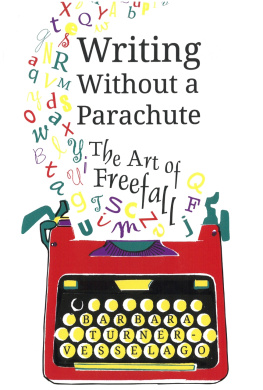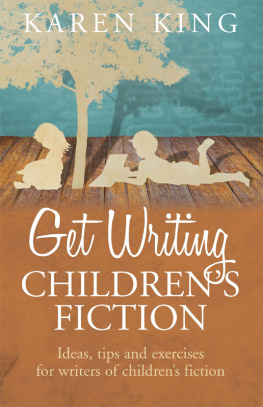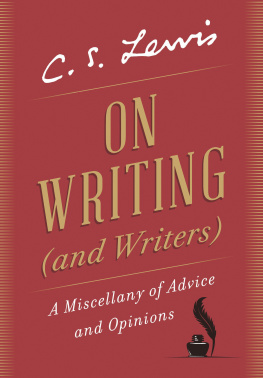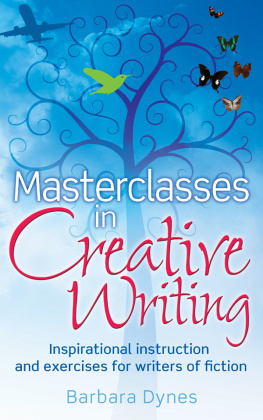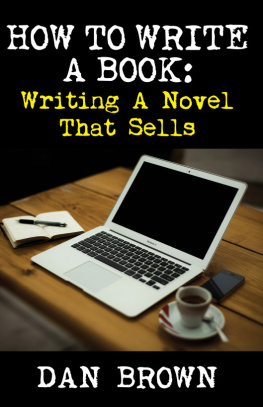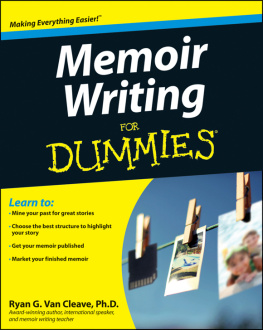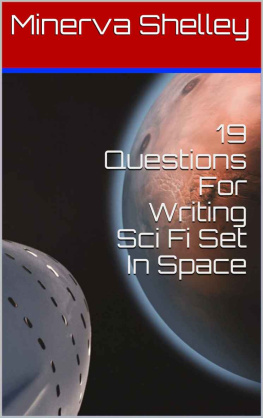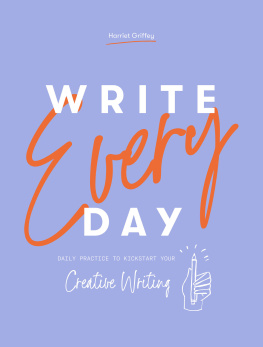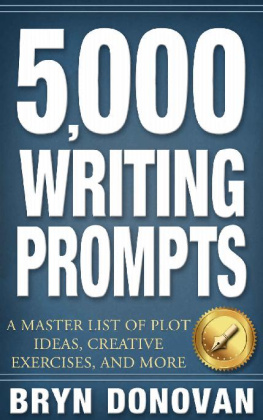
Writing Without a Parachute
The Art of Freefall
Barbara Turner-Vesselago

Jessica Kingsley Publishers
London and Philadelphia
Contents
Introduction
How can I get past whatevers stopping me from writing? I know I have a book in me, but how can I get it out? I feel as if Im bobbing along on the surface when I write. How can I go deeper? Writing has gone stale for me. I cant get started! Is there any way I can stop struggling with my writing and start to enjoy it?
Virtually everyone I have ever worked with has been contending with at least one of these writing dilemmas from experienced writers to people who have never even tried to write but have always thought they would. And I hear almost daily from others who are wrestling often in some desperation with the same problems: why cant I do this? Why is it so hard?
The fact that I hear these questions asked so often is not in itself surprising. Writing creatively is, after all, an activity you can practise on your own. Writers have been doing so for centuries. People dont seek out writing teachers unless they have a problem. What is surprising is the fact that despite the voracity of readers, despite the variety of ways now available to publish writing, and despite the number of books offering writing advice, this current of desperation continues to swell. I want to write, but something is stopping me. I just cant seem to make it happen.
What I have come to understand, in working with peoples writing for almost three decades in half-a-dozen English-speaking countries around the world, is that it doesnt matter how strong the will to write may be, or how much knowledge about the craft of writing you have: if you want to write creatively all of this has to be balanced by the ability to surrender.
By surrender, I dont mean handing over your power to someone or something and becoming a victim. I mean learning how to allow your willing, intending self to get out of the way, so that a deeper level of vulnerability becomes possible. In this surrendered way of writing, you become truly present for what comes up as you write, with an open heart, able to let things emerge on the page that you didnt anticipate. You may find youre able to convey human complexity at a depth that surprises you, or proceed on the basis of insights you didnt know youd had. You may realise that youve entered the world youre creating so deeply that it feels like a lucid dream or that may not turn out to be the way your mind works at all. The specifics of what will happen are unpredictable; they will be uniquely your own. But what I can predict is that you will begin to see that, though they both use language, writing in this way is not the same as thinking. It can take you to different places from those you can reach by thinking. It proceeds by its own logic, and seems to draw on a greater range of thought, feeling and invention than it is possible to gain access to in ordinary waking life.
One way to conceive of this comparison is to think of writing in this open, surrendered way as relaxing the tight grip of the rational, egoic self in order to gain access to a deeper field of awareness that is, in the main, unconscious. Of course there are communications back and forth between that deeper awareness and the habitual thought-processes of our daily lives, but they often manifest as brief flashes of what we call intuition, or insight, perhaps. Like meditation, writing in this way seems to develop a stronger bridge from the rational mind, with which we are all too numbingly familiar, to the less well known potential. Seen from the point of view of the rational mind, much of what you write in this way may not seem to you to be of much value at first. And thats why I talk about getting out of your own way its a matter of quieting the objections of one part of the mind so that what this more unbounded awareness has to contribute can make itself known.
In the book that follows, I will be providing you with a reliable way of finding this essential vulnerability, a method you can use until that has become central to the way you write. In the early chapters, you will be given the precepts of Freefall Writing, which offer a dependable means of shifting into it. These chapters both explore what the precepts mean and show you how to remain aware of them as you do the writing suggested there. Building on what you will have accomplished by doing that writing, the later chapters show you certain important ways the scope of the precepts can be extended.
If you are willing to write and to follow those precepts, then no matter what your level of experience, you can discover the degree of absorption and spontaneity that good writing requires. And once you can reliably depend on doing so once you have learned, in other words, to get out of your own way and let the writing lead you you can begin to learn to bring intention back into the balance, directing that spontaneity in such a way that it serves your specific writing goals.
The one catch, though, for readers of this book, is that you do have to do the writing. If you just read what I have to say, intending to write sometime, youll only be adding to your store of will and intention, which is probably already bursting at the seams. But nobody does the exercises in a writing book! a writer friend protested when I mentioned this necessity. Nonetheless. This book, which distils much of what I have been doing with writers in person these past three decades, has been written to support you in restoring an essential balance to the writing process. It is as important that you write as it is that you read the examples I have given (which one student called learning to write by osmosis). Without your deepening your understanding of this process through writing as you go, much of what I say (and even why I say it) wont make the necessary kind of sense to you. Remember: writing (in this surrendered, Freefall way) is not the same as thinking . It has its own logic and its own power both greater than and different from the power of your rational, thinking mind. The only way to learn about these differences is to experience them.
Chapter One
Finding the Way
In the chapters that follow, you will find a very practical guide to writing without a parachute, to finding the deeper level of trust in writing that comes from what I have called surrender. Its from that deeper level of trust that everything else you need to know about writing will follow. But before you begin, I think it might be useful for me to describe how I, personally, came to understand the connection between the kind of open-hearted vulnerability Im talking about, and good writing.
Discovering Surrender
Have you ever been caught off-guard, as a child, if not as an adult, by a moment when everything fell into place and you seemed to be guided by a knowing that lay deeper than your conscious mind, or beyond the familiar bounds of what you knew as your ordinary self?
I was impelled toward much of what I now know about writing by one such experience so prolonged and intense that it made me question everything I thought I knew. Was it an experience of psychosis? Or was it simply an experience of opening into a different way of seeing and knowing that lay within my own mind? All I know is that it left me very differently attuned to the world, and unabashedly curious about how the mind works. Partly because it happened while I was stranded in the midst of a demanding writing project and primarily because one of my deepest ambitions had always been to write, that experience led me, step by step, to find out what I needed to know about how writing works, and how I could learn to do it.
Next page
